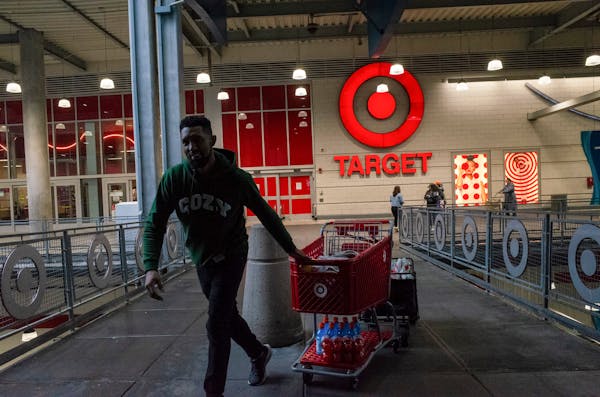Two of Target's top executives have announced plans to retire from the retail giant.
Chief Operating Officer John Mulligan said Tuesday that he plans to remain in his role until February before transitioning into a yearlong strategic adviser role within the Minneapolis-based company ahead of his retirement in February 2025. Laysha Ward, chief external engagement officer, is also in the process of becoming a strategic adviser with plans to retire in April.
"On behalf of the entire Target team, I want to thank John and Laysha for the tremendous impact they've had on our team and business during their impressive careers with the company," CEO Brian Cornell said in a statement. "I look forward to working closely with John until his retirement in 2025 and appreciate the important role he'll play in setting his successor up for success, and I wish Laysha the very best as she prepares to embark on her next chapter."
Mulligan, who has been with the company since 1996, has served in various roles, including chief financial officer and interim president and CEO before Cornell joined the company. Mulligan, who is 58, has worked as chief operating officer since 2015, overseeing Target's strategy to use its stores for the majority of its fulfillment as well as the recent evolution of its contactless shopping capabilities, such as order pickup and drive-up. Target hasn't shared information yet on how it plans to fill Mulligan's position.
Ward, who is 55, started with the company's Marshall Field's division in 1991 and went on to spend more than two decades leading corporate responsibility and the Target Foundation, notably helping start Target's partnership with St. Jude Children's Research Hospital.
Target also announced Matt Zabel as its chief corporate affairs officer, and promoted Kiera Fernandez, formerly its chief diversity and inclusion officer, to chief community impact and equity officer. As part of her new role, Fernandez will take on external stakeholder engagement, which Ward previously handled.
Last fall, Cornell, then 63, announced he would lead Target for at least three more years. That forced the company to eliminate its retirement policy, which had required a discussion of retirement once a top executive reached age 65.

Minnesota turkeys head back to D.C. for pre-Thanksgiving presidential pardon

Spine surgeon built Burnsville campus to operate on patients others deemed too risky

After COVID grounded flights, Rochester's airport has faced a slow recovery

Ramstad: Investors focused on AI and flashy tech may overlook important innovation

